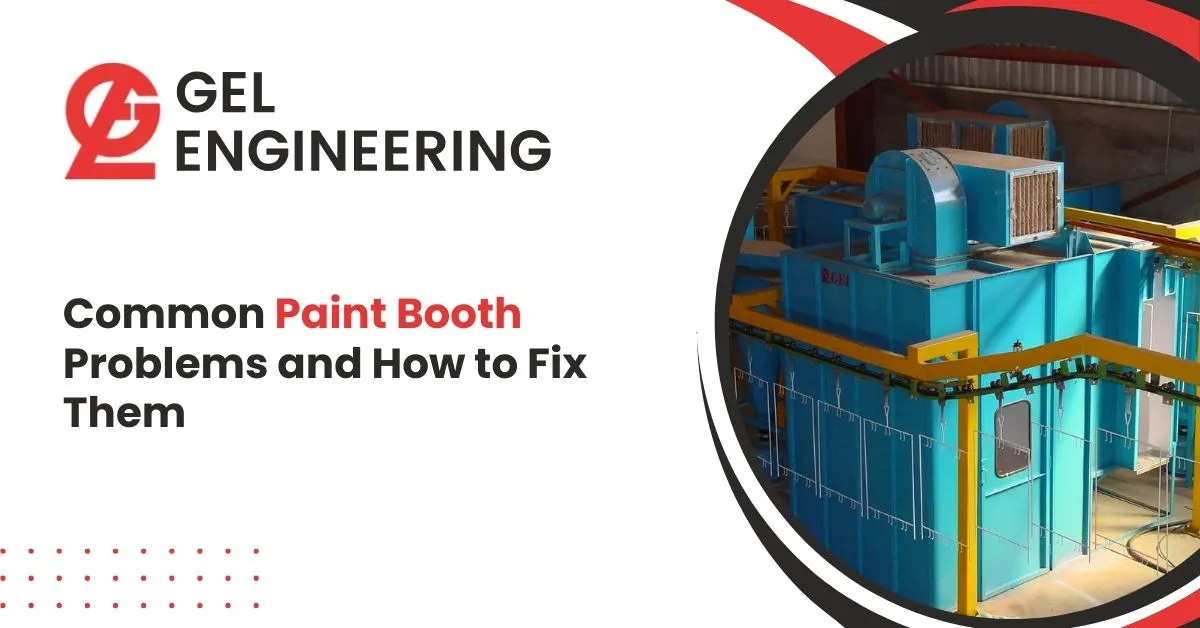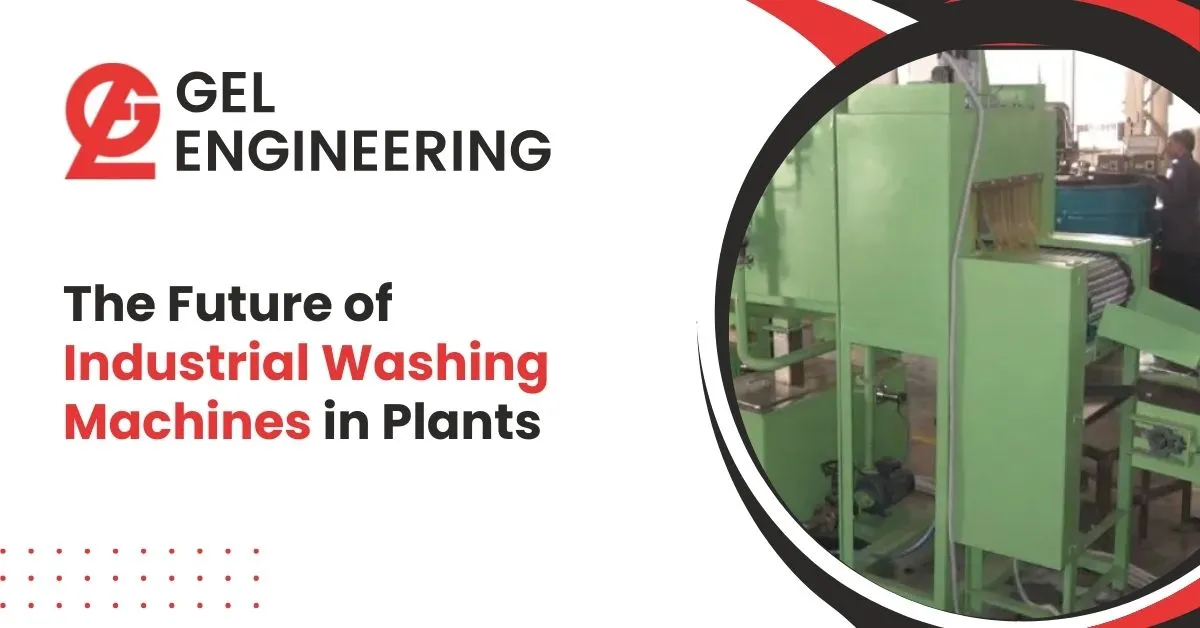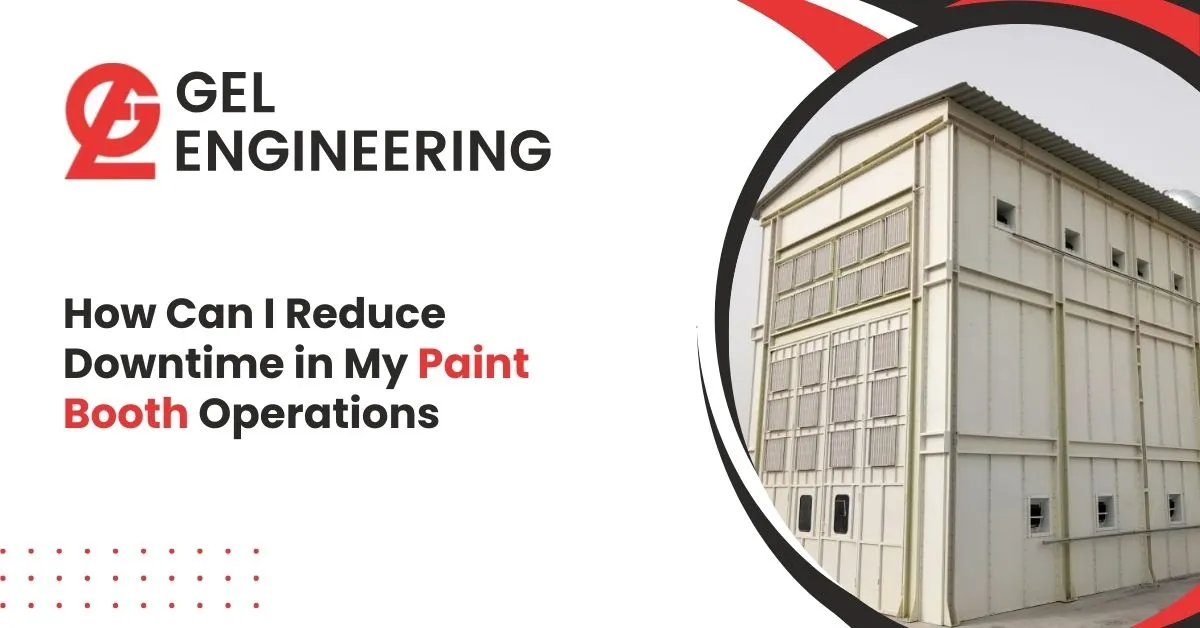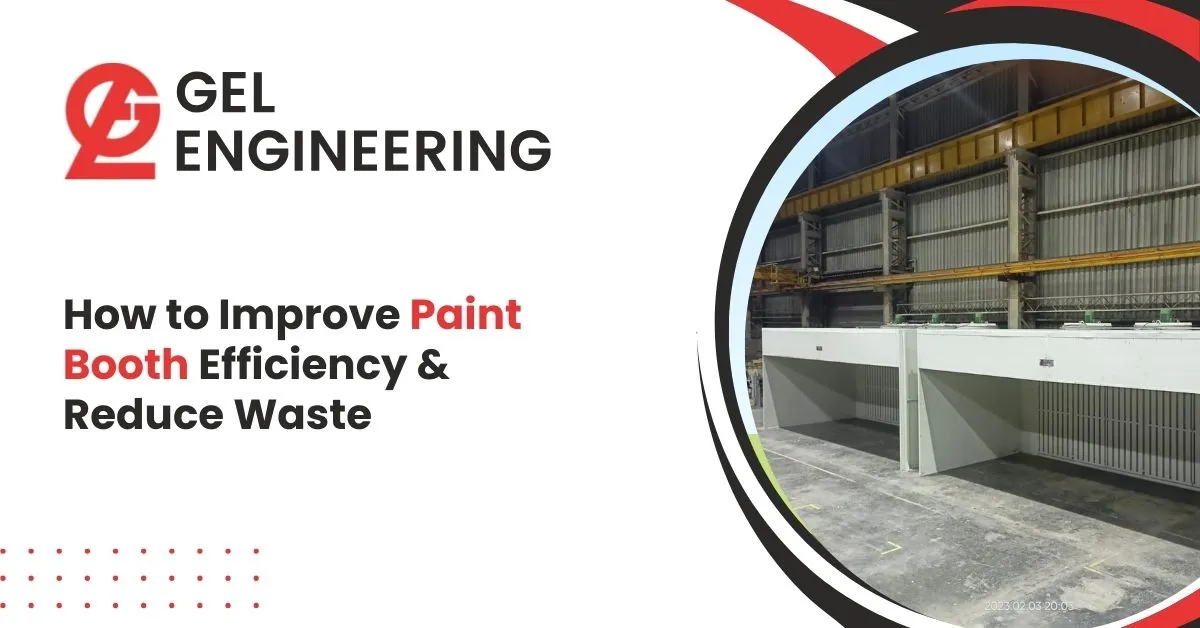Industrial washing machines play a vital role in manufacturing plants across industries like automotive, aerospace,…

A well-functioning paint booth is crucial for achieving high-quality finishes and maintaining a safe working environment. However, various issues can arise, affecting productivity and coating performance. Understanding common paint booth problems and their solutions ensures optimal operation, better paint jobs, and increased efficiency.
Uneven Paint Coverage
Uneven paint application can lead to an inconsistent finish, requiring rework and additional costs.
Causes:
- Poor air circulation within the automotive paint booth
- Improper spray gun settings
- Clogged air filters
- Inadequate paint viscosity
Solutions:
- Regularly check and replace paint booth air filters to maintain airflow
- Adjust the spray gun settings based on manufacturer recommendations
- Ensure proper paint mixing and viscosity levels
- Optimize airflow direction within the booth
Excessive Paint Overspray
Overspray can lead to wasted materials and contamination of nearby surfaces.
Causes:
- Incorrect spray gun pressure settings
- Poor ventilation in the industrial paint booth
- Operator technique errors
Solutions:
- Set the spray gun pressure to the correct level for the specific paint type
- Improve exhaust fan performance to maintain air balance
- Train operators on proper spray techniques to reduce overspray
Paint Booth Contamination
Contaminants in a powder coating booth or liquid paint booth can ruin finishes and require costly rework.
Causes:
- Dirty air filters
- Poor booth sealing
- Contaminants from workers’ clothing or tools
Solutions:
- Regularly clean and replace air intake filters
- Seal any gaps or leaks in the booth structure
- Implement strict paint booth maintenance and cleaning protocols
- Use proper protective clothing and clean tools before entering the booth
Overcome paint booth difficulties with our Down Draft Paint Booth! Contact us for expert solutions and enhanced performance.
Inadequate Curing and Drying Times
Slow drying or improper curing can lead to defects like paint peeling or chipping.
Causes:
- Incorrect temperature settings in the paint booth oven
- Inconsistent airflow distribution
- High humidity levels
Solutions:
- Adjust the paint booth temperature control to match the required curing specifications
- Improve airflow uniformity by maintaining clean fans and filters
- Use dehumidifiers in the paint booth to control moisture levels
Paint Booth Ventilation Issues
Poor ventilation leads to safety hazards and subpar paint jobs.
Causes:
- Blocked or dirty exhaust filters
- Inefficient air intake and output balance
- Malfunctioning fans or ducts
Solutions:
- Clean or replace exhaust filters regularly
- Balance the airflow system by adjusting intake and exhaust fans
- Schedule routine inspections of fans and ducts to prevent blockages
Fisheyes and Blistering in Paint Coatings
Surface defects like fisheyes and blistering can ruin a paint job and affect product quality.
Causes:
- Presence of oil, grease, or silicone on surfaces
- High humidity or temperature fluctuations
- Improper drying techniques
Solutions:
- Thoroughly clean and degrease surfaces before painting
- Control humidity levels and maintain consistent temperatures
- Follow recommended drying and curing times strictly
Frequently Asked Questions
What is an important factor to control in a paint booth?
An important factor to control in a paint booth is airflow, which ensures proper ventilation and minimizes the risk of harmful fumes and particles accumulating in the booth.
What are the two primary hazards associated with paint booths?
The two primary hazards in paint booths are flammability due to the presence of flammable vapors and inhalation of toxic fumes or overspray particles.
What are the OSHA requirements for paint booth ventilation?
OSHA requires paint booths to have adequate ventilation that ensures proper air exchange, controls flammable vapors, and maintains a safe working environment by minimizing exposure to harmful substances.
Conclusion
Identifying and addressing paint booth problems promptly ensures better paint quality, reduces waste, and improves operational efficiency. Regular maintenance, proper airflow management, and training operators on best practices help keep your industrial paint booth in peak condition.




